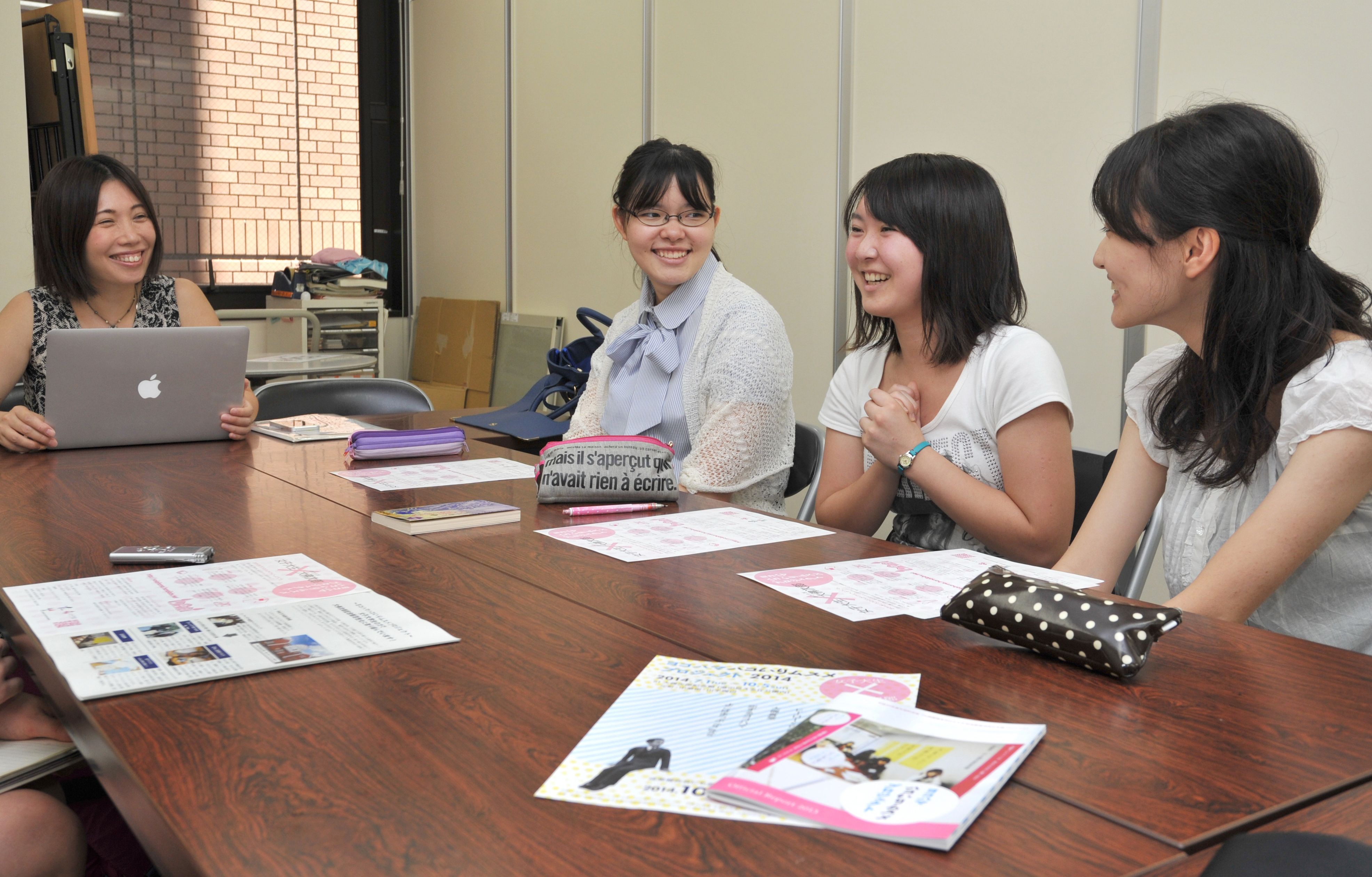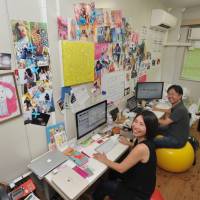Tokyo-based nonprofit organization Hanalabs is offering female college students in Japan a chance to advance their careers by devising solutions to social problems affecting communities in need of revitalization.
One of the projects was launched in 2013 at the request of the Yokohama Municipal Government, which was seeking ways to attract younger generations to one of the city's historical institutions.
Participants were appointed to help turn around the decline in visitors to the Osaragi Jiro Memorial Museum, which is devoted to Yokohama-born novelist Jiro Osaragi (1897-1973), who is best known for the history novel series "Kurama Tengu." The series was once considered as popular as "Tarzan" in the United States.
Visitors to the museum, a redbrick building where Osaragi's manuscripts and a collection of first edition books are displayed, exceeded 100,000 when it opened in 1984. But that had dwindled to 14,000 by 2011, according to Yokohama officials.
Under the guidance of Hanalabs' staff, groups of students started offering ideas to revitalize the memorial in consultation with municipal officials and other institutions in the city.
One group has adapted "Kurama Tengu" into a short play and plans to perform it at a local elementary school at the end of August.
Yukiko Ogawa, a first-year philosophy major at Tokyo Woman's Christian University who is on the project team, said it was her first opportunity to plan and carry out a project. She said the experience has sparked an interest in historical novels.
"I've always thought that I'm not good at speaking in public, but I've noticed I'm actually quite good at it," said fellow team member Haruna Makabe, a first-year humanities student at Toyo Eiwa University.
Earlier this month, Hanalabs launched a new project in cooperation with the Shiga Prefectural Government, aimed at encouraging female students to simulate future employment opportunities and explore available alternatives that could advance their careers.
The idea was conceived by Megumi Sumi, an IT firm owner who in 2007 launched a service to support the career development of young women. It was this service that would develop into Hanalabs in 2012.
Through an online service called Hanajob, Sumi has been alerting students to job opportunities and firms that promote work-life balance and diversity. Its website receives more than 100,000 page views per month.
"We've noticed that female students do possess skills but are not given an opportunity to utilize them," Sumi said. "Even now, over 60 percent of women in Japan, many of whom are highly skilled, decide to give up their jobs after giving birth to their first child," she said, stressing that one of her biggest concerns is that the talents of women are going to waste.
Since graduating from Tokyo Woman's Christian University, Sumi said she has seen a lot of female students who lack ambition.
"Many students believe that marriage will enable them to live a peaceful life, but they're unaware that it's not the reality," she said, noting that her parents' divorce prompted her as a student to acquire solid career skills.
By giving them chances to tackle issues that lack fixed answers, she wants students to think about how to solve problems, who to work with and how to take a leadership role when necessary.
In the first project Sumi launched, 30 students were assigned to address the low marriage rate on Ama, an island in Shimane Prefecture, despite the high proportion of young residents moving to the area. The students invented a card game that allows young people to get acquainted with each other in private, away from the gaze of other members of the tightknit community, before deciding whether to start a romantic relationship.
Hanalabs has also developed training courses for aspiring reporters and workshops for students and working women to share information about working environments and their experiences with them. The events have attracted more than 600 students.
Although many of those who apply to participate in the projects lack confidence, Sumi said she can see their attitudes change within a day.
Most have innate abilities specific to women, such as social sensitivity, altruistic and empathetic skills, that help in developing innovative solutions, Sumi claimed, adding that many women are also good at planning.
"Many of those who ace job interviews or get better test scores are women," she said. "In many cases, men appear to be outperformed by women."
According to Hanalabs, all of the participants in their projects were able to find employment after graduation.
Some have gone on to initiate activities at their workplaces and try to help other women to display their abilities and individuality in the workplace more actively, Sumi said.
"I want to give female students a chance to notice and develop (marketable) skills," she said. "I believe any change in this group will work toward a (major) change in Japanese society."





















With your current subscription plan you can comment on stories. However, before writing your first comment, please create a display name in the Profile section of your subscriber account page.